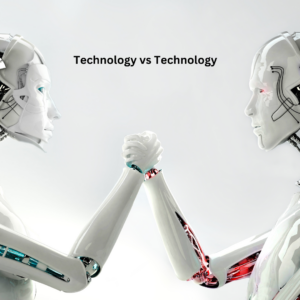
A Work Futures Study from Dexian put into words what many have long believed – using AI in the workplace rarely benefits job candidates or employees. Titled The Great Disconnect, the study uncovered areas of improvement for employers across the use of AI, cultural fit, work arrangements and upskilling/reskilling. The 2024 Work Futures Study measured the growing disconnect between what workers want and need and what employers deliver.
One of the main findings was the belief employers rely too much on technology and AI in the hiring process. 72% of workers surveyed agreed. Only 24% think AI should be used in the review of resumes. Candidates are also losing faith in their ability to use tech-enabled searches to find better jobs quicker. This is interesting considering the study findings showed six in 10 employers struggle with how and where to use AI in the hiring process.
Technology vs. Technology
This is all a bit ironic when you consider that job candidates have long been trying to “beat” the ATS in numerous ways. Fighting technology with technology is becoming the norm as job candidates use AI to write a resume that will be read by AI and potentially could never be seen by a human at all. Maruf Ahmed, CEO of Dexian, recommends using AI in recruiting and staffing to increase efficiency and effectiveness to drive solid results, not to replace the human element entirely.
Technology is also creating added pressure on employees to continually up their skills. 75% of workers agree they must continually reinvent themselves/reskill due to the rapid pace of change in their profession. Performance is increasingly measured on how employees can up their contribution with technology.
49% of workers also find it challenging to progress in their current job as the result of rapid technological advances. 59% of workers agreed that continuously changing technologies make it hard to plan for the future. It’s also difficult to plan when you don’t know if your job could be eliminated as a result of new technologies, leaving employees with a sense of limbo.
Looking for Options
The concept of cultural fit and soft skills also results in a disconnect between employees and employers. 24% of workers ranked “values/soft skills/cultural fit” as most important when employers are hiring new employees, but only 43% of workers say they underwent values or culture assessments for their current job. Although cultural fit is often touted to be significant in the workplace, only 50% of workers agree their employers have built a value-based culture using employee surveys/data to find what is important to them.
Workers don’t understand where employers are coming from and employers haven’t always conveyed their reasoning, leading to misunderstandings and a worker experience that’s as of yet far from optimal.


